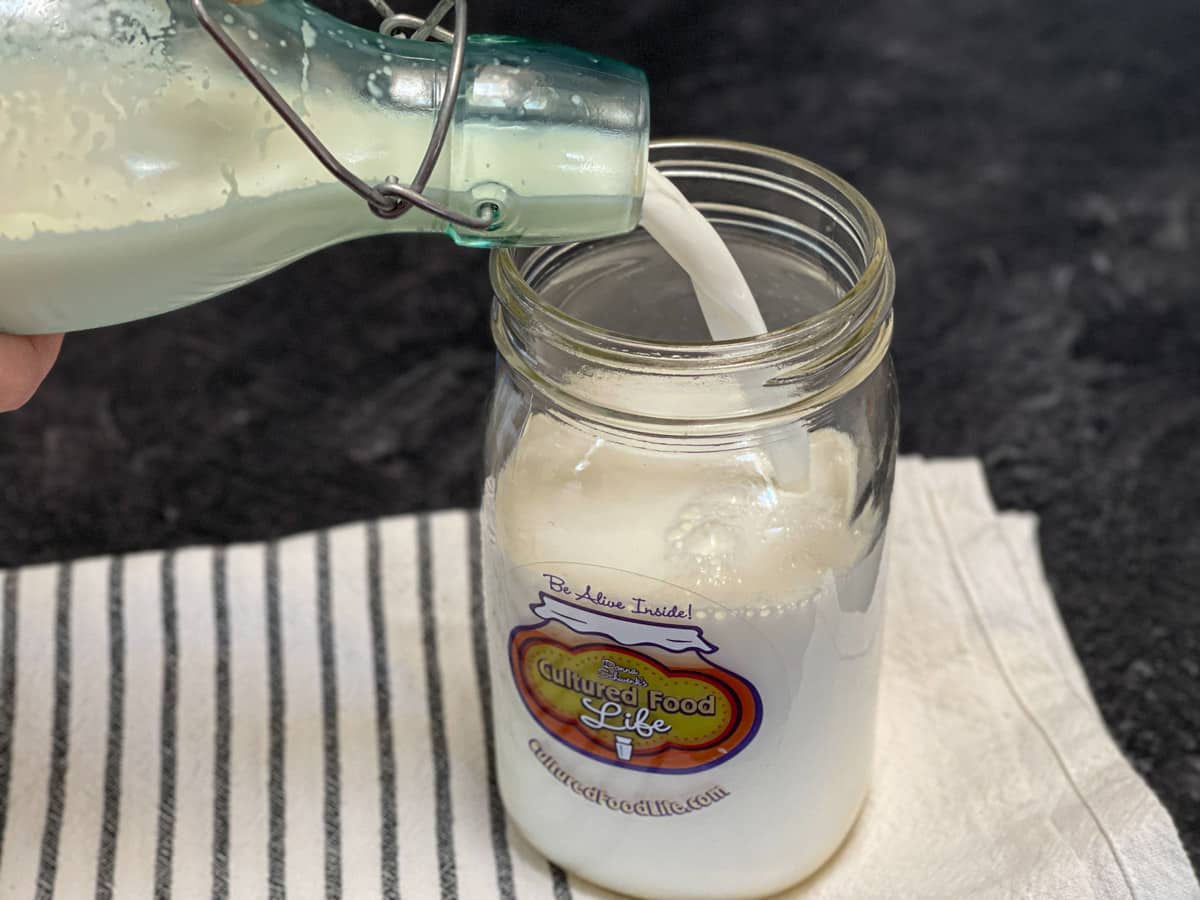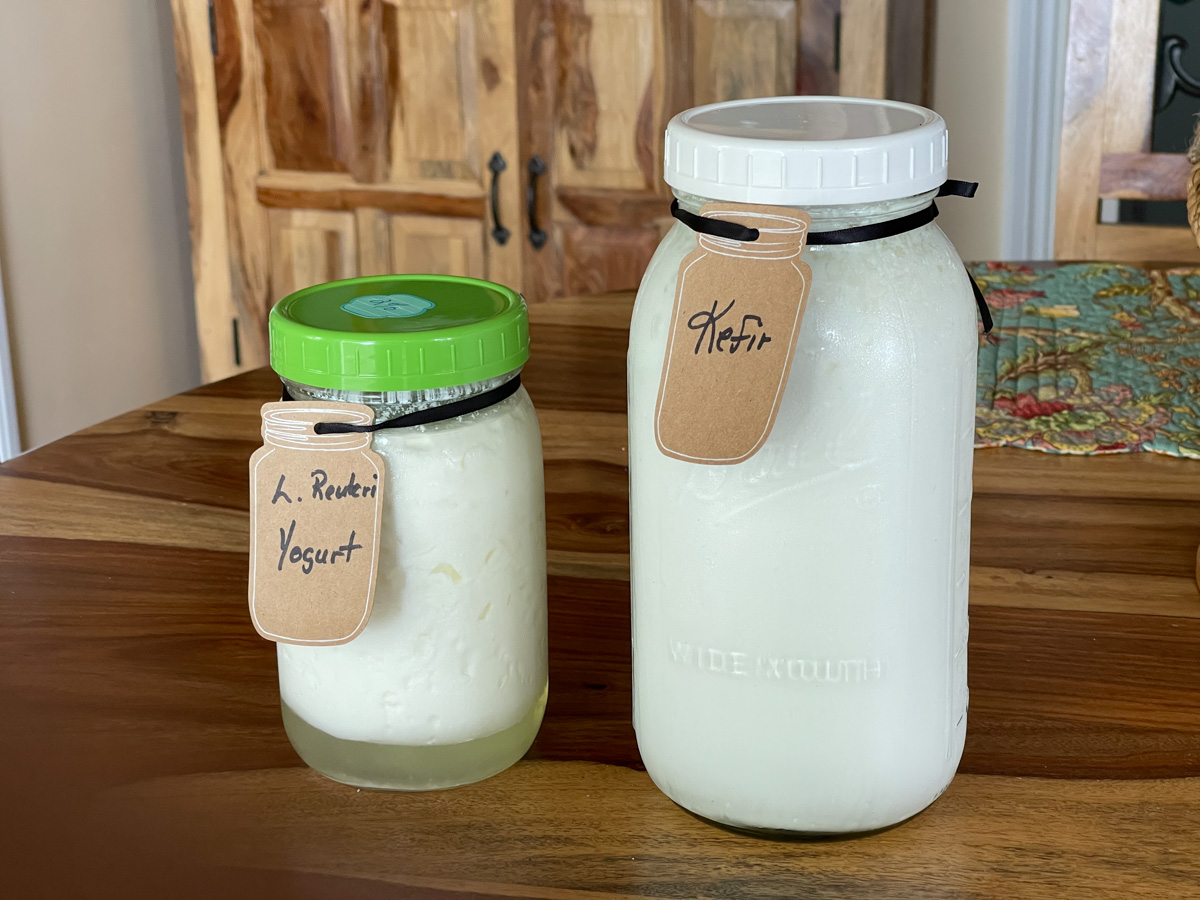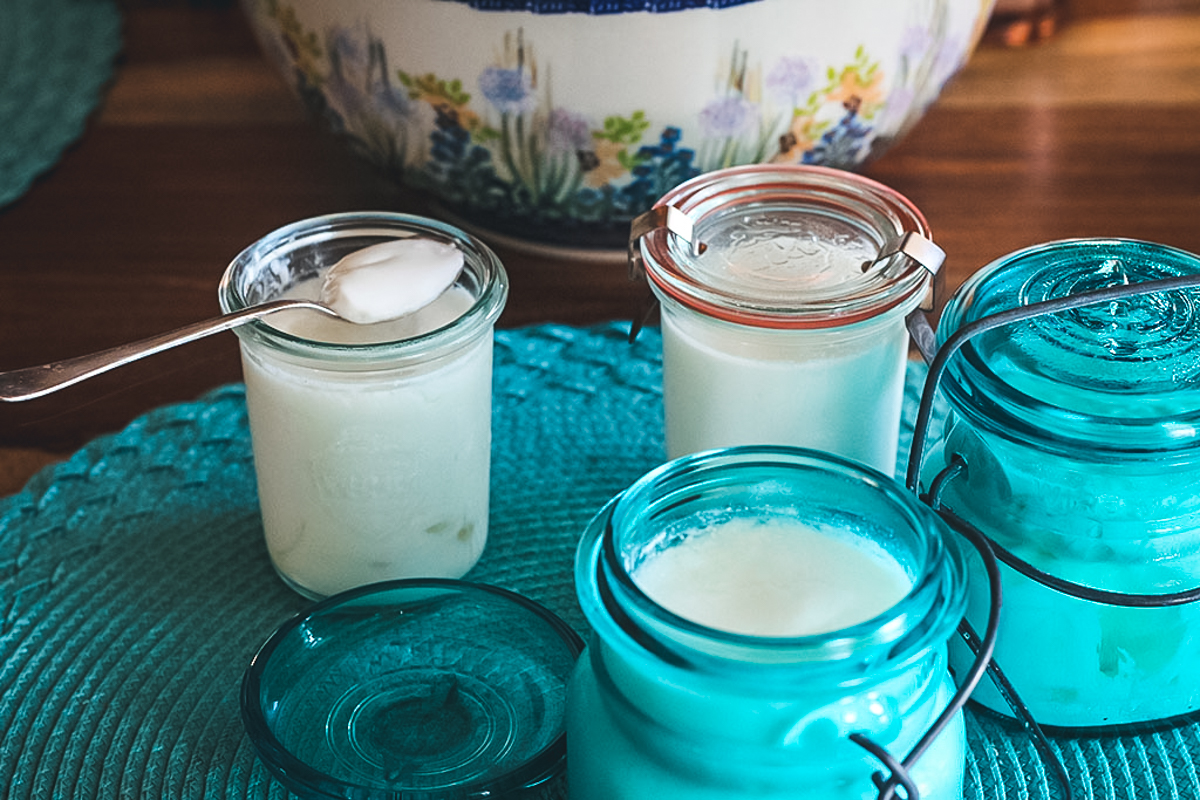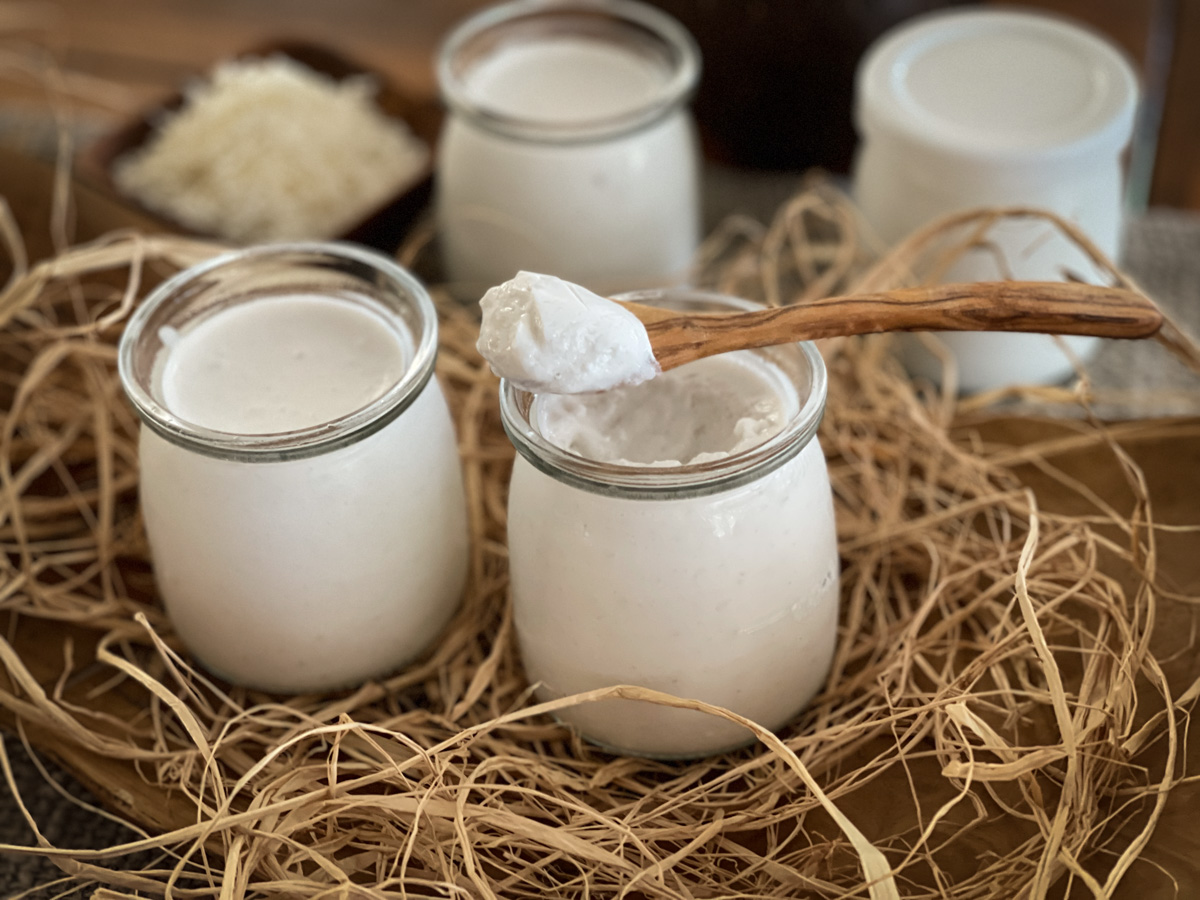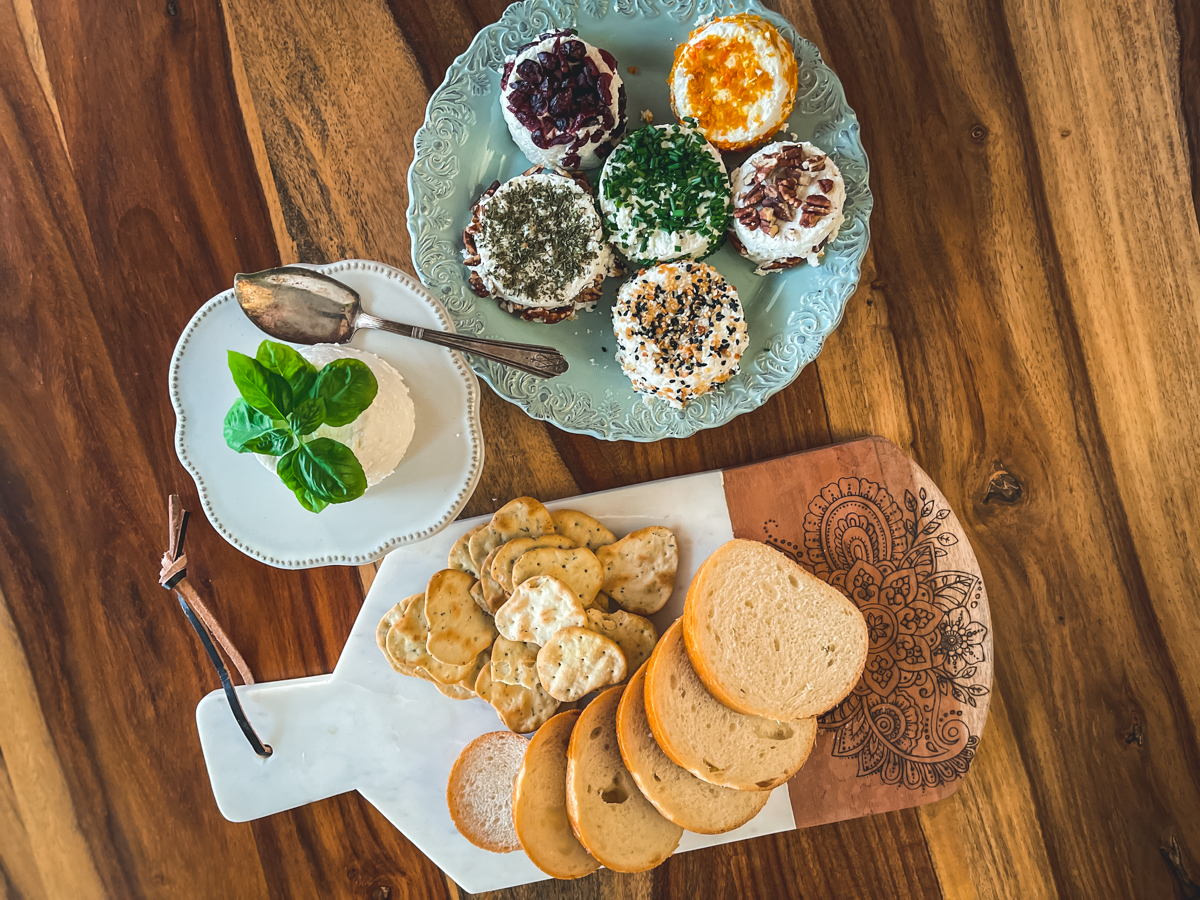
Fermented Dairy Is Better Than Regular Dairy
History of Milk
Many of the foods we eat have been deemed either bad or good. Throughout my life, I have witnessed that many foods once deemed to be super healthy are now being deemed bad for you - and dairy is one of them. Often it is not the food, it's what we have done to the food and what we have done to our guts that is the problem. Since so many people have stopped drinking dairy, their bodies stopped producing the enzyme that helps them digest it. Combine that with taking antibiotics that kill strains of bacteria that are needed for proper digestion and problems ensue. Researchers are finding missing gut bacteria is the main reason for all the food allergies that are occurring at alarming rates. Check out this article for more info.
Pasteurization was first used for milk in the 1890s. It killed harmful bacteria in the milk during a time when they couldn't keep the milk safe and sanitary. This helped prevent many diseases. When milk is pasteurized it kills the enzyme in raw milk needed for digestion called lactase. Lactase generally resides in the small intestine and it breaks down lactose. Once lactose is broken down by lactase into its glucose and galactose components, they are readily absorbed and used throughout the body. Pasteurization also kills naturally occurring vitamin C in raw milk.
Homogenizing milk began in the 1920s to create a more uniform texture. Homogenization makes the milk creamy and prevents a layer of cream from forming in the milk. However, it does change the original state of the milk into smaller particles than non-homogenized milk which goes through fewer processes and so is nearer to its natural state.
Since that time, raw milk has made a comeback with farmers who help to produce safe raw milk. I have been drinking it for twenty-three years and have seen many health benefits. It's legal to buy in my state and It is nice to be able to get it in my health food store. Each state is different concerning the sale of raw milk, but it is becoming more and more readily available. Check out the raw milk finder.
Fermented Dairy
Fermented dairy is a completely different food from regular dairy. If you are worried about dairy or have trouble digesting it, then fermented dairy might be a good ally for you. When you ferment dairy, such as in kefir or yogurt, the good microbes consume 99.9% of all the lactose in kefir and slightly less in yogurt. This is why it tastes tart and sour. All the sugars are gone and used by the microbes as fuel, allowing them to make billions of probiotics and a lactose-free milk that many can enjoy without problems.
Health benefits
Fermented dairy such as kefir contains compounds that are being shown to be anti-inflammatory, anti-hypertensive, and protective for your heart and for controlling blood sugar. I have personally experienced all of these benefits and these are some of the many reasons I drink it almost every day. In addition to this, you will also get billions of probiotics and enzymes that will help you digest all the foods you eat with it. You will also absorb more nutrients from your food and the speed of digestion will increase. Kefir can help increase the number of bowel movements in people with constipation, and it also seems to soften stools.
Fermented milk lowers risks
A study done in Sweden at the Swedish Mammography Cohort, on 61,433 women and 45,339 men, found that high milk intake in both sexes is associated with higher mortality and fracture rates in women and men as well as higher levels of oxidative stress and inflammatory biomarkers in both groups. This pattern is not observed with fermented dairy products which appear to be associated with a lower risk of fracture and mortality and fewer inflammatory markers. [1]
Oldest woman dies
Recently, the oldest woman in the world died at 129.[2] Koku Istambulova lived through a lot of troubled times and had a hard life, but her recipe for a long life was fermented milk. Many centenarians consume lots of kefir and I wrote about it here: Living Longer on Yogurt and Kefir
More vitamins in fermented milk
The lactic acid bacteria (Lactobacillus) is responsible for so many of fermented milk's health benefits. During fermentation, microorganisms generate lots of vitamins such as vitamin C, B group vitamins, and vitamin K. All of the vitamin C is killed in pasteurization, but during fermentation, the microbes add the vitamin C back to the milk while increasing the B vitamins too. If you want to supercharge your kefir even more, try second fermenting your kefir by adding a small piece of fruit peel. Check out this article. Second fermented kefir
Vitamin K2 is called menaquinone (MK) and is predominantly of microbial origin. The K2 is produced by gut bacteria in your large intestine and many researchers suspect that broad-spectrum antibiotics contribute to a K2 deficiency. Cultured foods such as kefir, sauerkraut, certain cheeses, and natto contain substantial amounts of vitamin K2. The body easily absorbs what it needs thanks to the microbes in these foods. Most people are deficient and not getting enough Vitamin K2.
K2 Health Benefits
- Vitamin K2 has been shown to reduce the risk of prostate cancer by 35 percent. [3] It also protects against leukemia and might even be used as a treatment for leukemia in the future [4]
- Vitamin K2 may help protect us from heart disease by reducing calcium deposits in the arteries. Some studies have even shown it can reverse arterial calcification[5]
- Vitamin K2 helps form strong bones and helps the skin stay healthy with the prevention of wrinkles, sagging skin, and varicose veins. Vitamin K2 is a necessity for vitamin A to do its job which is maintaining proper skin cell proliferation.
- Dr. Price talked extensively about the role of K2 in tooth health and helping to keep the teeth cavity resistant by helping dentin produce osteocalcin. Osteocalcin deposits calcium into the enamel.
- Brain health can improve by eating more vitamin K-rich foods. These foods have been shown to sharpen memory and stave off dementia in older adults[6]
- The immune system is greatly enhanced by vitamin K2, specifically as it fights inflammation. It strengthens your immune cells, allowing you to fight off pathogens better. [7,8]
It's clear that vitamin K plays an essential role in body function, and I've seen it help my family tremendously - especially in our early days of eating cultured foods
Fermented Dairy
Check out all our fermented dairy starters and recipes. They are pretty life-changing. I started with kefir which has the most probiotics and is the easiest to make. Easy Kefir is a wonderfully easy and fast way to make kefir. You can make it in 5 minutes and 24 hours later you'll have your first jar. Fermented dairy is the best dairy!
Yogurts
Cheese & Butter
Listen To My Podcast
Fermented dairy is a completely different food than dairy. It has enhanced vitamins and properties and almost no lactose. The health benefits are huge! Tune in to learn more.
References I talked about:
References:
- https://www.naturalmedicinejournal.com/journal/milk-vs-fermented-milk-products-risk-mortality-and-fracture/
- https://www.mirror.co.uk/news/world-news/worlds-oldest-woman-who-didnt-30899986
- https://www.nutraingredients.com/Article/2008/04/09/Vitamin-K2-linked-to-lower-prostate-cancer-risk
- https://www.ncbi.nlm.nih.gov/pubmed/16142303
- https://www.ncbi.nlm.nih.gov/pubmed/18722618/
- https://www.ncbi.nlm.nih.gov/pubmed/26923488
- https://www.vitafoodsinsights.com/vitamins-and-minerals/overlooked-benefits-vitamin-k-immune-system-0
- https://www.naturalproductsinsider.com/immune-health/potential-vitamins-d-and-k2-immune-system
Are you on the list?
Sign up today and I'll send you my free Getting Started Guide!
Each week I'll send you updates, tips, recipes, and more! You might even be a winner of my weekly giveaway! (starter cultures, memberships, and more!)
Come be a part of my cultured food family!

